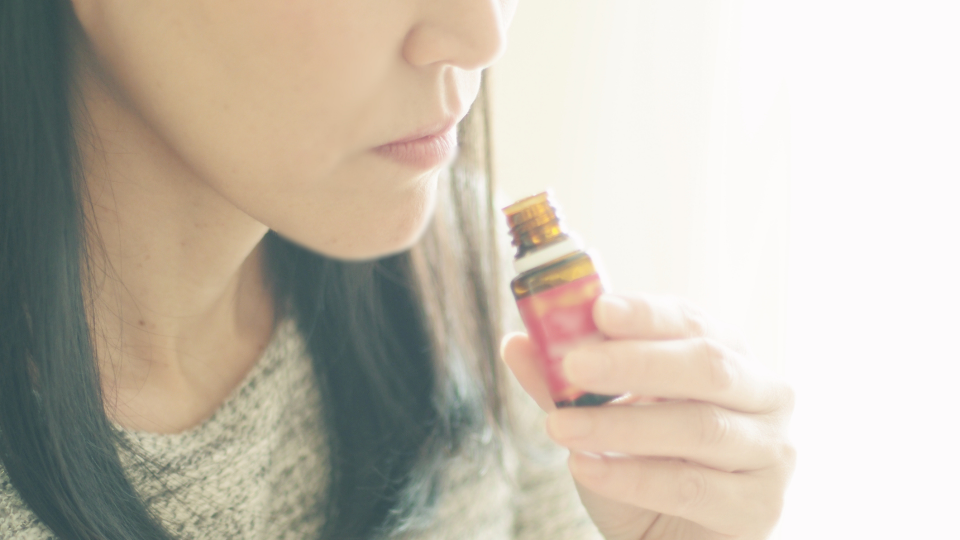COVID's lasting effects: For many, wine tastes like water and smoke smells like clean air
By the second day of her COVID-19 infection, Lisa Milne was so congested she couldn't taste or smell anything.
A week later, when an antiviral and her immune system had worked their magic, she was almost back to normal. But while her infection resolved almost a year ago, her smell and taste have not returned.
Loss of smell was one of the defining characteristics of COVID-19 when it first spread in 2020; about 80% of those infected reported at least short-term loss. Although variants of omicron seem to have less effect on smell, about 15% of those infected endure at least a temporary loss.
It has been unclear why many people, like Milne, endure sensory loss longer.
A new study based on a 2021 national survey found more than 6 million people reported sensory loss as of that year, and a quarter reported long-term deficits.
For Milne, 59, a software marketing professional in Pelham, New Hampshire, the loss has been depressing and disorienting.
She loves to cook with her husband, Tom, and share a glass of wine while they do. Milne, a volunteer in a Mass General Brigham patient study of COVID-19-related smell and taste loss, can no longer taste the wine (though she can still identify cheap vintages from the mouth feel) and she needs her husband to tell her if what they've made is any good. She has burned a few things ‒ not noticing until Tom asked if she was intentionally burning down the kitchen. "So there's some danger involved," she said.

About six months ago, after losing the family's beloved 13-year-old chocolate Labrador retriever, Abby, and breaking her foot, Milne acknowledges "sitting here feeling really good and sorry for myself." And her favorite foods no longer made her feel better: "That is missing − the mental reward you get using food."
She realizes that there are worse problems to have and that people have more troublesome lingering effects of infection.
But that's one of the things Milne finds most baffling and concerning about COVID-19. Tom ran a fever of 104 degrees for two days, but, like most of their friends, he recovered just fine.
"What is that virus that did this?" she said. "That did this to me and not to my friend next door?"
Recent findings on COVID-19's effect on smell
The new study, published in the journal The Laryngoscope, looked at the 2021 National Health Interview Survey (NHIS), which includes survey data from 29,696 adults. People who had contracted COVID-19 were asked about the severity of their symptoms, any loss of taste or smell, and their recovery of those senses.
The analysis found 14% of American adults had been diagnosed with COVID-19 in 2021, and more than 60% reported a loss of smell and 58% a loss of taste. Though about three-quarters reported sensory recovery, the remainder saw partial or no return of smell and/or taste.
Some in that group may have caught COVID-19 in 2020 and were still lacking sensation the following year, and some may have been reporting a more recent result.
Those with the most severe COVID-19 symptoms were most likely to report a loss of smell or taste. The likelihood of recovery was also lower in those with more severe symptoms, the study found.
Co-author Dr. Neil Bhattacharyya, a professor of otolaryngology at Mass Eye and Ear, said he was surprised both by the number of those affected and by how it lingered in so many. Roughly 5.2 million people suffered partial loss, and in 800,000, "it was really zapped," he said.
Pamela Dalton, a researcher at the Monell Chemical Senses Center in Philadelphia, said the findings are in line with her own, similar studies.
COVID-19 can also lead to distorted smells; favorite scents can suddenly resemble the smell of garbage, Dalton said. That can be a good sign− it suggests the sense of smell is slowly returning, she said.

How smell and taste are linked
Typically, the sense of taste depends on smell. Garlic and ginger, for instance, provide sensory input through the nose as much or more than the taste buds, Bhattacharyya said.
It used to be believed that loss of taste was just a misunderstood loss of smell, Dalton said, but recent research suggests that occasionally people can lose their sense of taste without loss of smell.
Claudia Gathercole, of Granger, Iowa, recently lost her ability to taste. Though it has been months since she caught COVID-19 while on an Alaskan cruise and her loss might have been caused by a subsequent infection, Gathercole said, the experience has been disconcerting.
Cooking brings her no pleasure, and going out to eat feels like a waste of money.
All she can taste is sweetness, which has made it harder to resist her sweet tooth. She put on a few pounds but is now losing them.
Everything that's not sweet or salty tastes bland, "like you're eating a spoonful of nothing," Gathercole said.
"I really hope somebody can crack this and find a way to make our taste buds reappear."
Reactions to the loss vary widely.
Just among his own patients, Bhattacharyya said, he has seen people lose vast amounts of weight because food no longer has any appeal, and some who gained because all they could taste was sweetness.
Sometimes, senses can suddenly reappear and then disappear again.
One night, Milne walked into a Thai restaurant after a hard workout and was thrilled to realize she could smell the food. But the sensation quickly faded. She has been trying to track the few times that has happened to better understand possible triggers.
Other people report smell returning, sometimes just transiently, when they received a COVID-19 vaccine, Dalton said, possibly because of the push to the immune system.
Researchers believe persistent inflammation around the olfactory nerve may be causing the smell loss, but treatments like steroids that are known to reduce inflammation usually don't work, Dalton said.
It has long been known that viruses can affect smell, Dalton said, but COVID-19 marked the first time that large numbers of people lost the sensation at essentially the same time and from a known cause.
"This has given us a window into treating this and understanding the underlying reasons for smell and taste loss that we've never had before, which I think is great," Dalton said. "It unfortunately came about in a very awful way."
Lack of treatments
There's not much available to help people with smell and taste loss.
Smell training has never been definitively shown to be effective, though Bhattacharyya said he has seen it work in a "minority of the cases."
Systematically and routinely sniffing items in your spice cabinet and refrigerator may help some people, particularly those with recent smell loss, Dalton said. "We're recommending it for everyone, because there's no risk except for maybe boredom and frustration."
Researchers are exploring whether giving people their own platelet-rich plasma in the nasal cavity offers any benefit, but it's too soon to know, Dalton said. An approach called Stellate Ganglion Block has not been shown to work, according to the advocacy group Abscent, and supplements like zinc are also unproven, Bhattacharyya said. (Other trustworthy groups include the Smell and Taste Association of North America and the British nonprofit the Fifth Sense.)
Still, it's worthwhile for someone with smell or taste loss to visit a doctor, Dalton said. "It can validate the type of problem you have."
There's always a chance that smell or taste might return, Bhattacharyya said. "But I'd say … the longer it's been lost the less likely it is to come back."
Long-term COVID study
In future research, Bhattacharyya hopes to dig into the demographics of who lost their smell and taste and who regained it, along with the quality of the impact. "We've identified it; now we want to do a more detailed analysis to see what the effect on their life is," he said.
Dalton is part of a team following people with long-term loss of smell or taste. Some people have had brain fog along with lost taste and smell ‒ and simultaneous recovery of both ‒ suggesting a possible connection. Others have been concerned the loss of smell might lead to problems with memory later on, but it's too soon to know, she said.
Diet, safety, personal hygiene and social relationships −"not being able to smell your husband, your wife or your child" − can be affected by a loss of smell, Dalton said.
Although there isn't much to be done, doctors and others shouldn't simply dismiss the complaint.
"It's not something you want to take lightly in the long run," Bhattacharyya said.
Contact Karen Weintraub at kweintraub@usatoday.com.
Health and patient safety coverage at USA TODAY is made possible in part by a grant from the Masimo Foundation for Ethics, Innovation and Competition in Healthcare. The Masimo Foundation does not provide editorial input.
This article originally appeared on USA TODAY: Long COVID side effects survey: Many hit with with smell, taste loss

